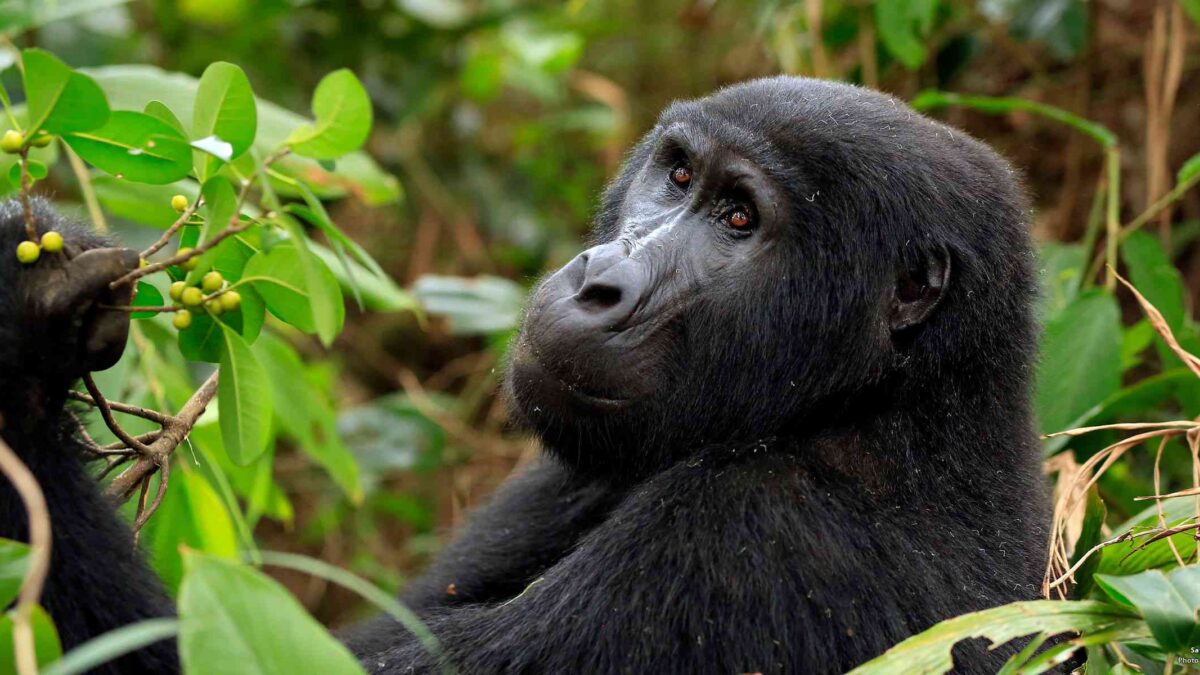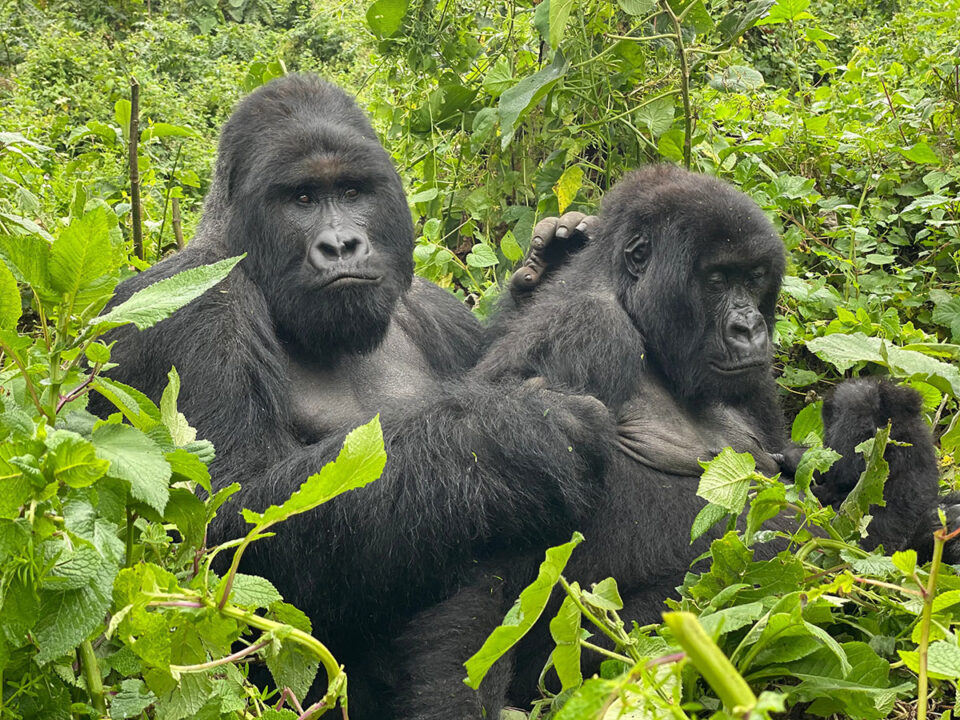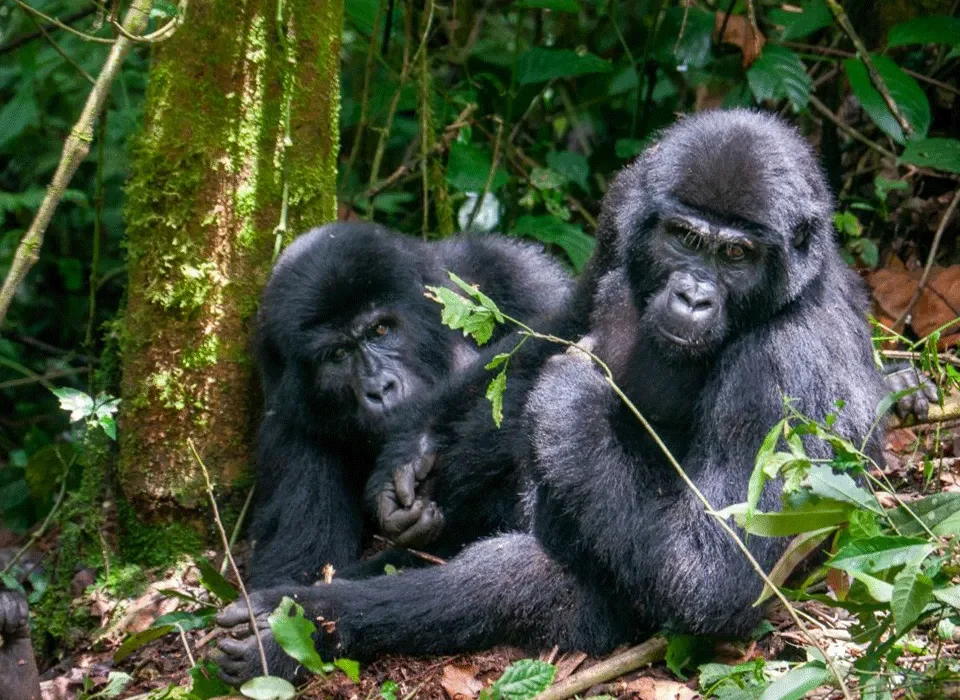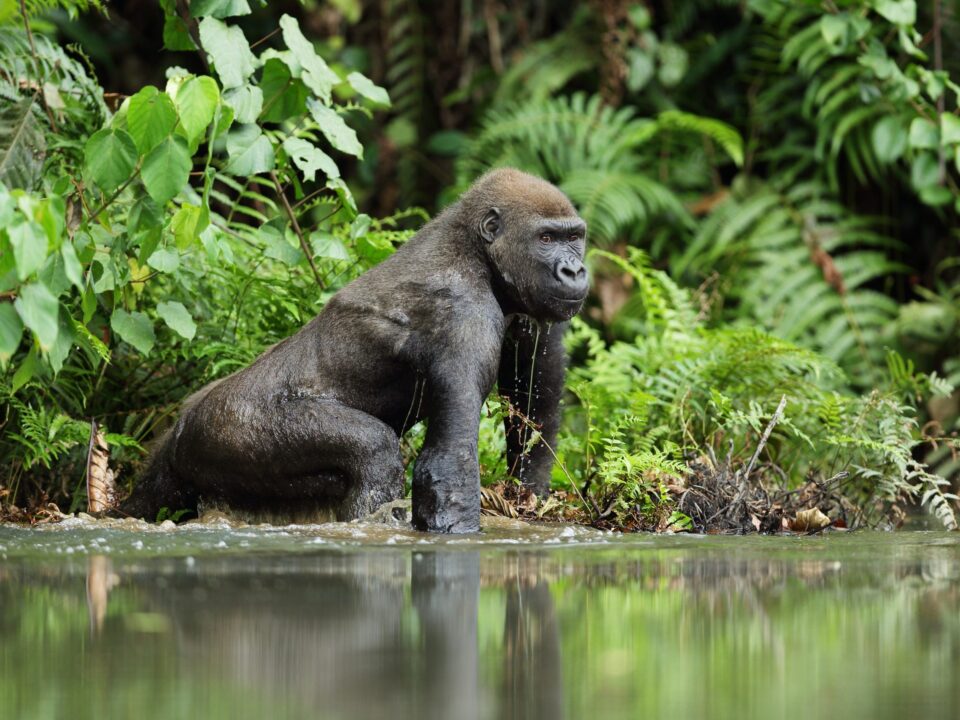Is Gorilla Trekking Ethical?

Chimpanzee Trekking Age limit in Uganda
February 12, 2024
How to book an African Mountain Gorilla Safari from Office?
February 12, 2024Exploring the Ethics of Gorilla Trekking: A Conservation Perspective
The ethical considerations surrounding gorilla trekking often weigh on the minds of conscientious travelers who seek to understand the impact of this activity on the endangered mountain gorillas. As the latest research and census in 2018 revealed an encouraging increase in the mountain gorilla population to 1070, questions arise about the morality and conservation efficacy of gorilla trekking experiences in Uganda and Rwanda.
Positive Impact on Gorilla Conservation:
Gorilla trekking serves as the linchpin of the tourism industry in Uganda, Rwanda, and Congo, attracting visitors eager to witness these majestic creatures in their natural habitat. The significant revenue generated from gorilla trekking permits plays a pivotal role in funding conservation efforts. This financial support helps the respective countries sustain and preserve their mountain gorilla populations for future generations.
The correlation between the love tourists harbor for mountain gorillas and the commitment of nations to protect and conserve these primates is evident. The continuous growth in gorilla numbers reflects the success of conservation initiatives fueled by the popularity of gorilla trekking. The activity not only contributes to the economic prosperity of the region but also ensures the ongoing existence of mountain gorillas.
Self-Sustaining Conservation Efforts:
Gorilla trekking emerges as a self-sustaining conservation project, illustrating how responsible tourism can positively impact wildlife preservation. The purchase of gorilla trekking permits, priced at USD800 in Uganda and USD 1500 per person per trek in Rwanda, facilitates the collection of funds dedicated to conservation endeavors. By engaging in gorilla trekking, tourists actively participate in the protection of these endangered species.
Ethical Gorilla Trekking Practices:
The ethicality of gorilla trekking hinges on responsible and respectful practices by tourists. Adhering to the established rules, do’s and don’ts, and regulations mandated by the government is paramount. Ensuring compliance with these guidelines safeguards the well-being of the mountain gorillas and their habitats. By following ethical protocols, tourists contribute to the long-term preservation of mountain gorillas, fostering a sustainable coexistence between humans and these incredible primates.
In conclusion, gorilla trekking emerges as an ethical and conservation-centric activity when approached with mindfulness and adherence to established guidelines. For those eager to embark on an ethical gorilla trekking safari, Trek Africa Expeditions offers expert guidance, ensuring an enriching and responsible experience. Contact us for detailed information about gorilla trekking in Uganda, securing gorilla trekking permits, and planning a safari that aligns with ethical conservation practices.




